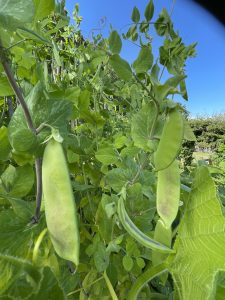Fresh peas straight from the pod are divine.
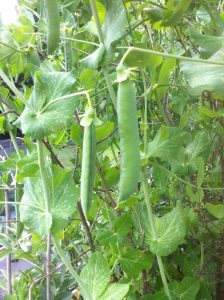
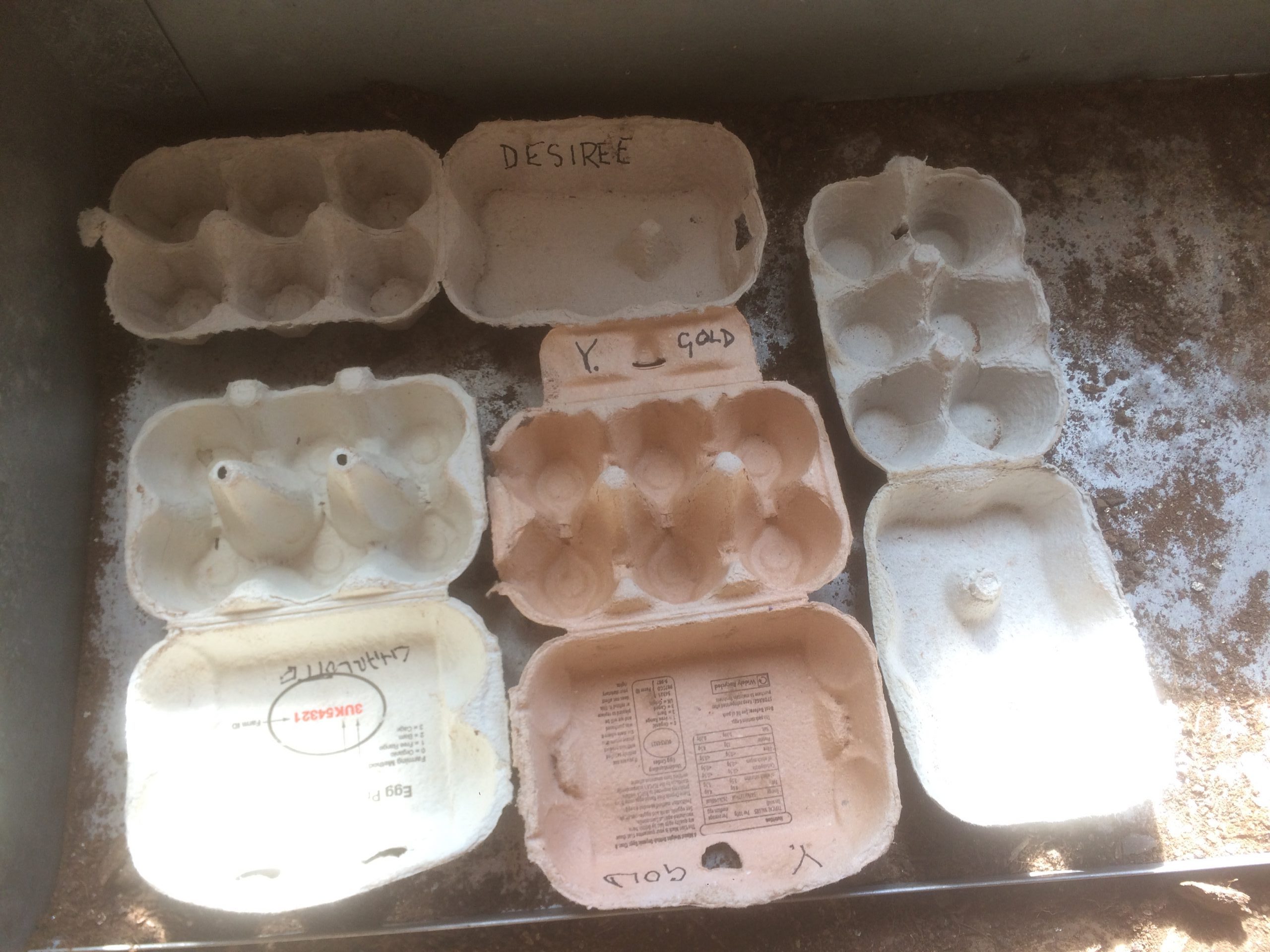
Its easy to start growing peas using egg boxes. First remove any sticky labels on the lids. Fill the boxes up with a mix of garden soil and old potting compost. If you don’t have potting compost it doesn’t matter, just use garden soil and be sure to make sure to remove any small stones, weeds and crumble it into as fine a tilth as you can.
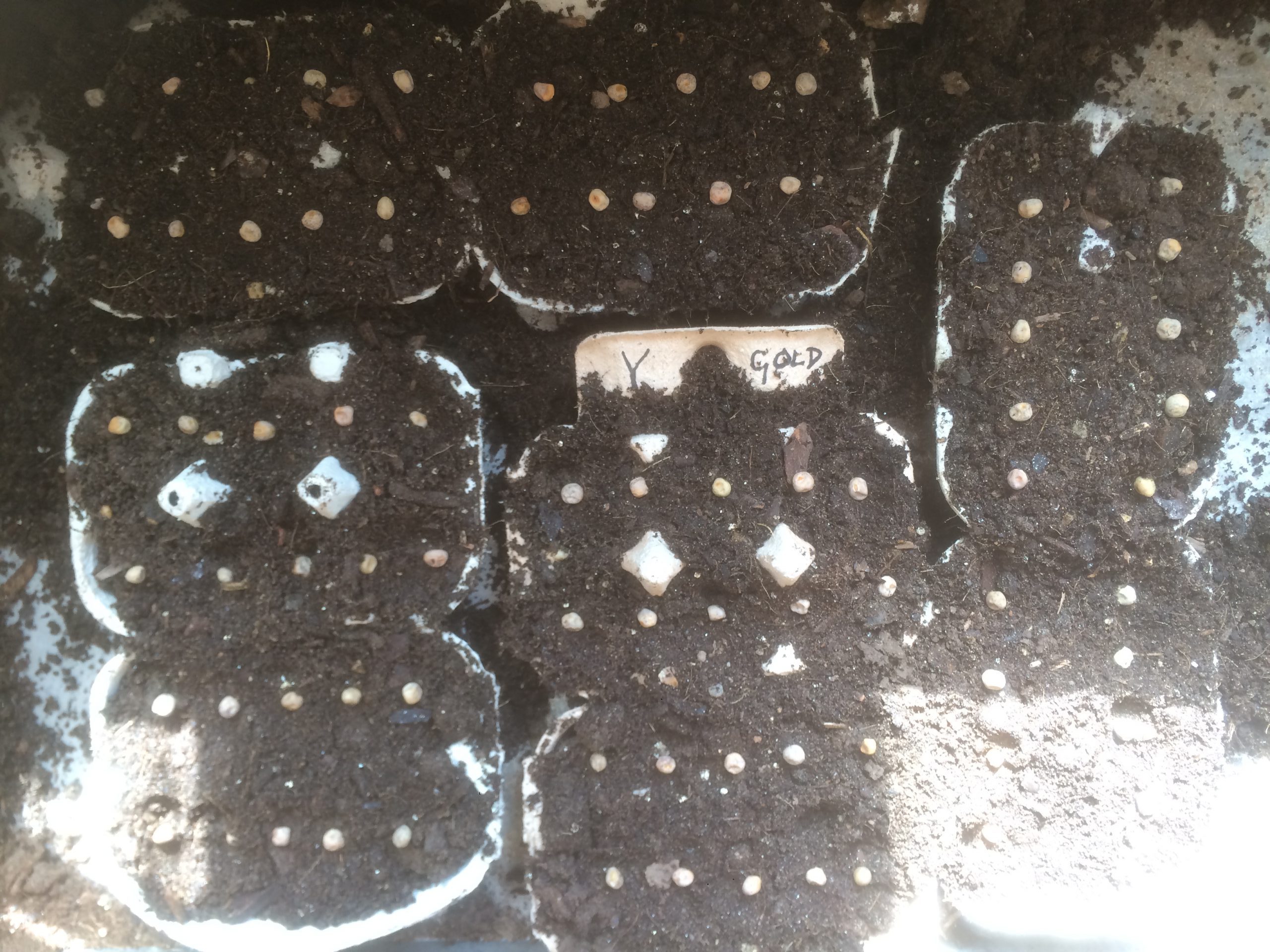
Then sow twenty seeds into each box in two rows as you can see. Four regular egg boxes or two dozen size boxes (80 seeds) will be enough to grow a 1 metre-long row of delicious peas.
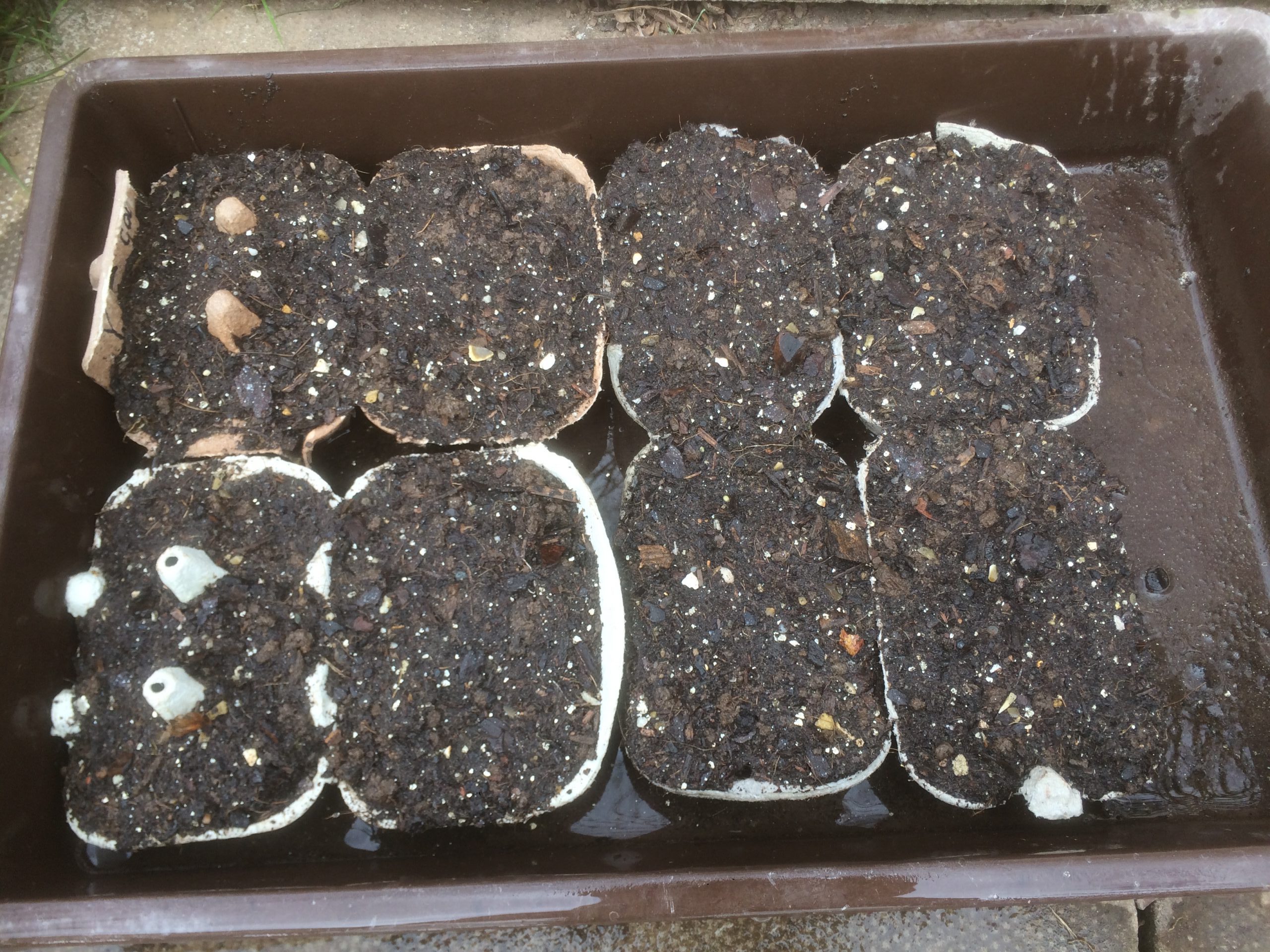
Gently press the seeds into the soil and cover with a little more soil. The peas need to be about 1 cm below the surface. Now gently water the egg boxes using a watering can with a fine rose. if you don’t have one of these it doesn’t matter. Water using a small jug. Do this carefully as you don’t want to wash the soil out of the boxes, exposing the seeds.
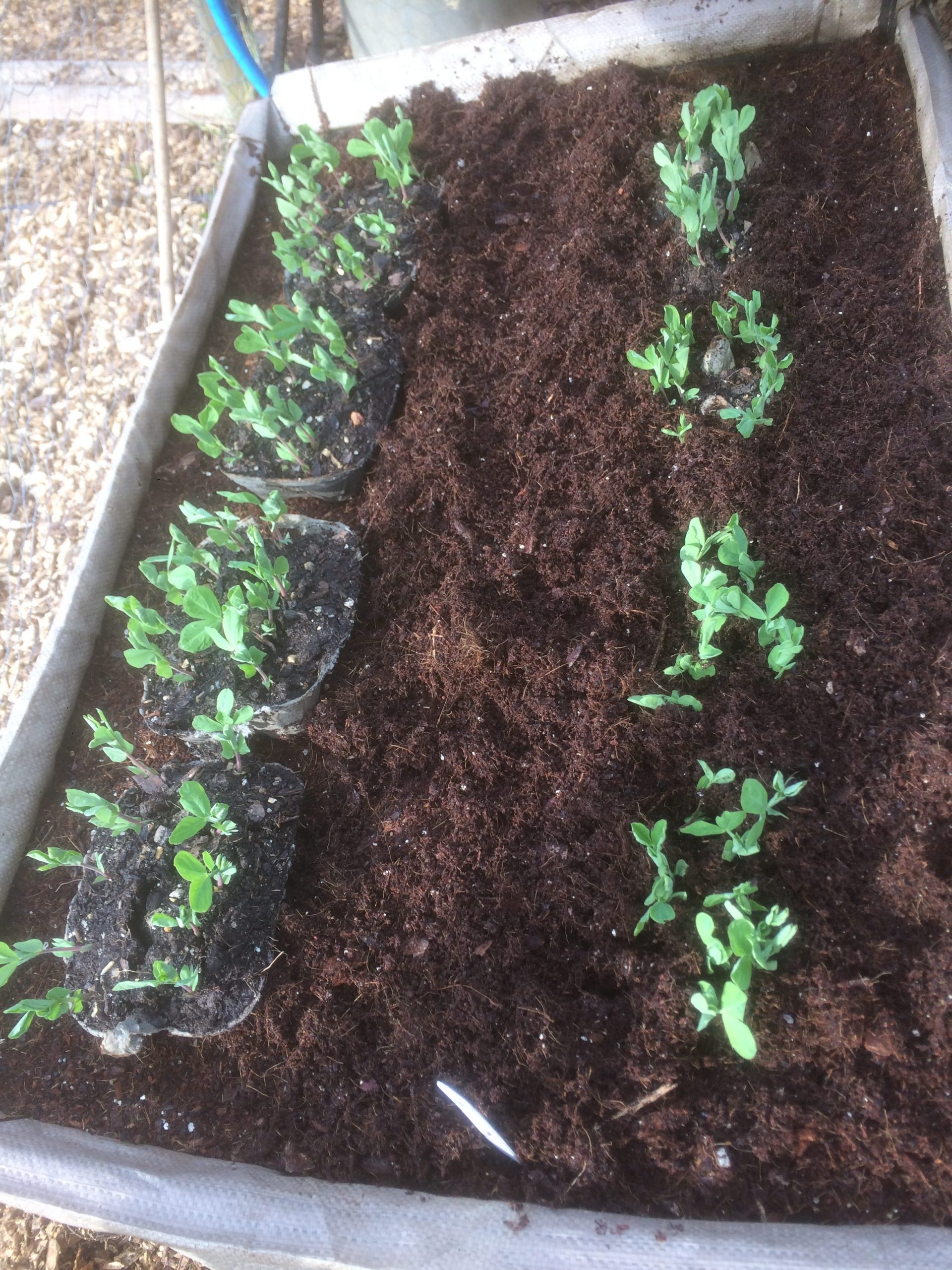
Now, leave the boxes in a sheltered spot outside. Mice love germinating peas so it is worth putting some cardboard or even a sheet of glass if you have some over the boxes. In a week or so the seeds will germinate and then any cover will need to be removed. Be sure that the soil is kept moist. When the seedlings are about 2 cms high plant the boxes straight into the ground where the cardboard will decompose and the peas will happily grow away. These seeds were sown on 1st April. First emergence was on 11th April and I planted them out on 16th April. You can also plant the egg boxes with their seedlings into a large container as I have done where they will grow just as well as if planted directly into the ground. Peas grow close together so regular weeding is a good idea. If you already have some cultivated ground they will do very well.
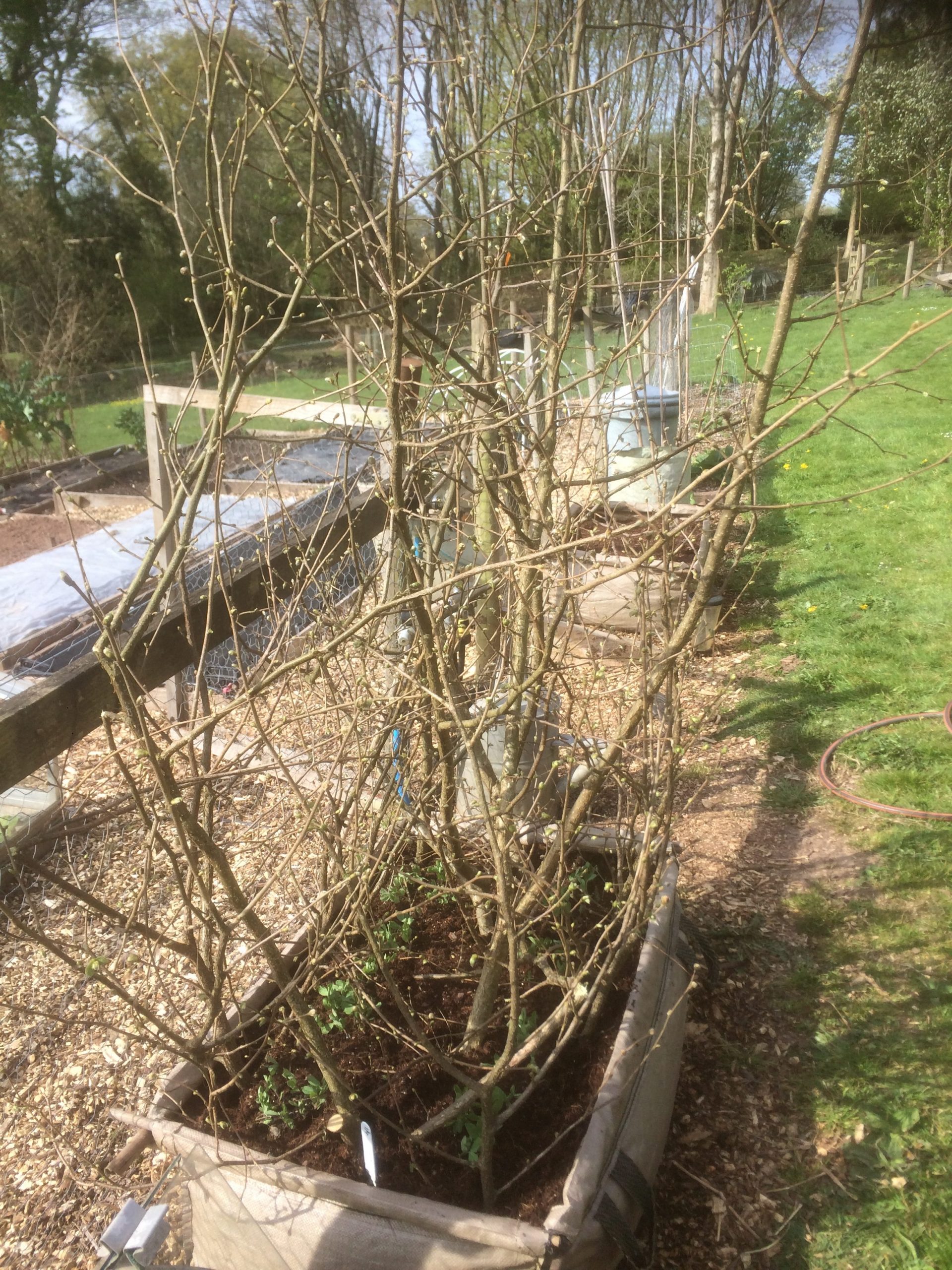
These peas are a mange-tout variety I discovered in Luang Prabang which I call Maiden’s Blush It grows to about 1.8 to 2 metres, so the plants need support. There are several ways to do this. As you can see I am using hazel twigs and stems for the peas to grow through. However, you can use canes spaced about 10cms apart with string tied around them to create a type of net for the pea tendrils to attach themselves. You can also buy pea netting which does the same job and can also be used to support climbing French beans and runner beans.
